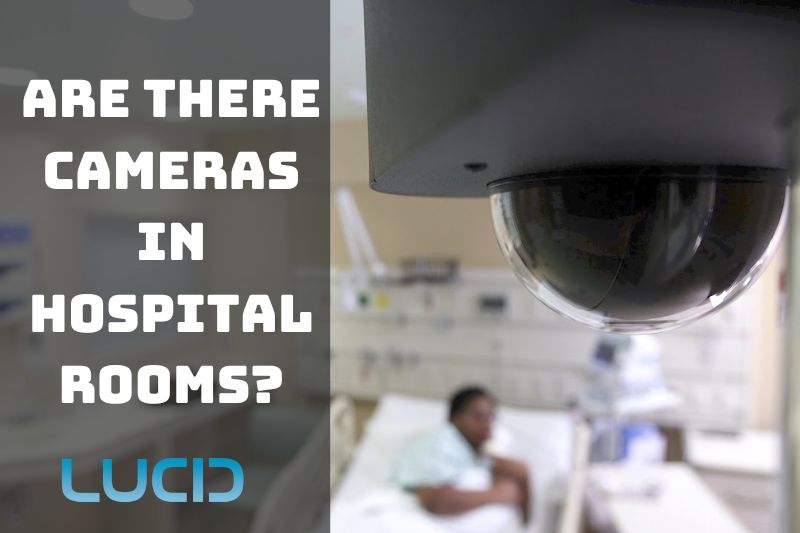Hospitals are really safe places, but some people are talking about whether they should use cameras. This article talks about Are There Cameras In Hospital Rooms and the good and bad things about using them to decide if it’s a good idea for safety.
Table of Contents
- 1 Are There Cameras in Hospital Rooms?
- 2 Why is There A Camera in My Hospital Room?
- 3 What Do Hospital Cameras Look like?
- 4 Do Hospitals Have Cameras In Every Room?
- 5 Pros and Cons of Hospital Security Cameras
- 6 What Types Of Security Cameras Do Hospitals Use?
- 7 How Long Do Hospitals Keep Video Surveillance?
- 8 FAQs about Do Hospital Rooms Have Cameras
- 9 Conclusion
Are There Cameras in Hospital Rooms?
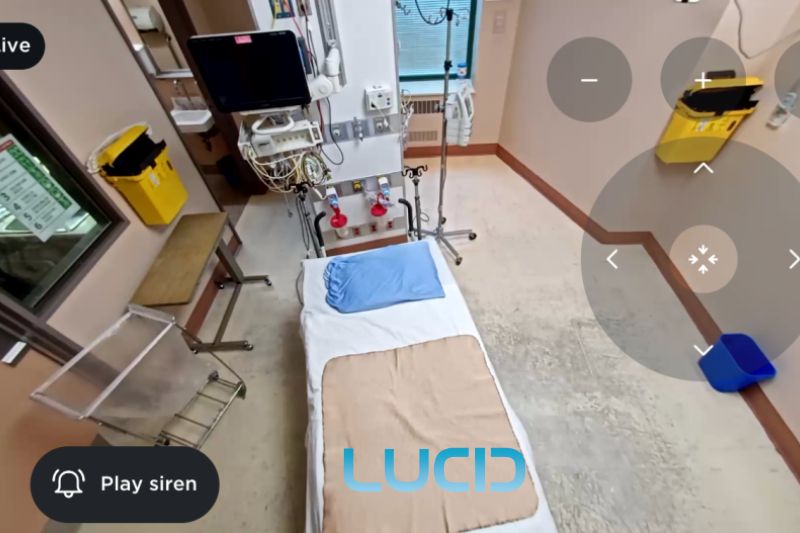
In general, hospitals do not routinely place cameras in patient rooms. This is for a number of reasons, one of which is safety. Patients have a right to privacy, and placing cameras in their rooms may be interpreted as a violation of that privacy.
Cameras may, however, be put in hospital rooms under certain circumstances. A camera, for example, may be put in to watch a patient’s behavior if they are in danger of injuring themselves or others.
Why is There A Camera in My Hospital Room?
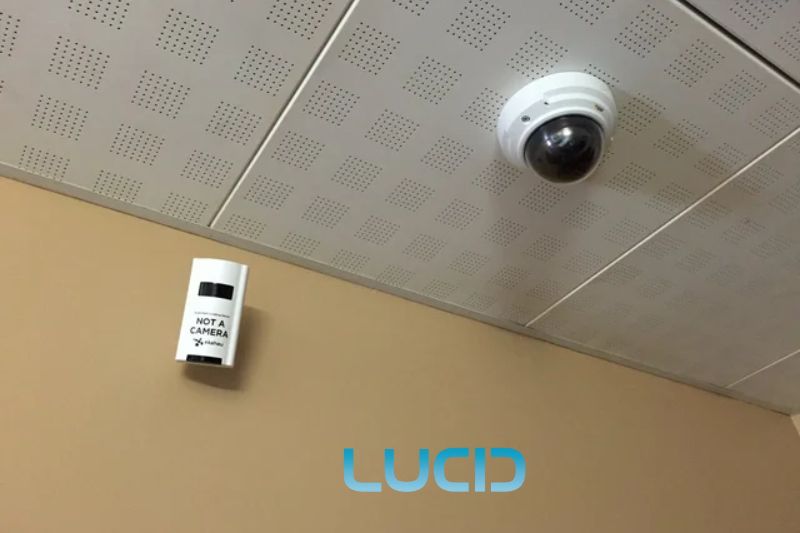
Here are some of the reasons why a camera may be installed in a hospital room
Theft Prevention
Hospitals have a lot of valuable things, so they can be a target for thieves. Cameras in patient rooms can stop thefts and help catch the thief. This is really important in places like operating rooms and emergency rooms where people’s lives are at risk.
Patient Safety
Patients’ well-being is always priority number one at a medical facility. Cameras may be utilized in a variety of ways to ensure the safety of patients.
For example, they might be put in the rooms of patients who are at risk of falling so that staff can watch how they move and help if they are in danger.
In the same way, Cameras can watch people who may harm themselves or others, to make sure they receive proper care.
Deter Abuse and Harassment
Abuse and harassment can, unfortunately, occur in healthcare settings. Cameras can be used to help deter abusive or harassing behavior and provide evidence in the event that such behavior occurs.
This can be particularly important in units that care for vulnerable patients, such as mental health or elder care units.
Incident Recording
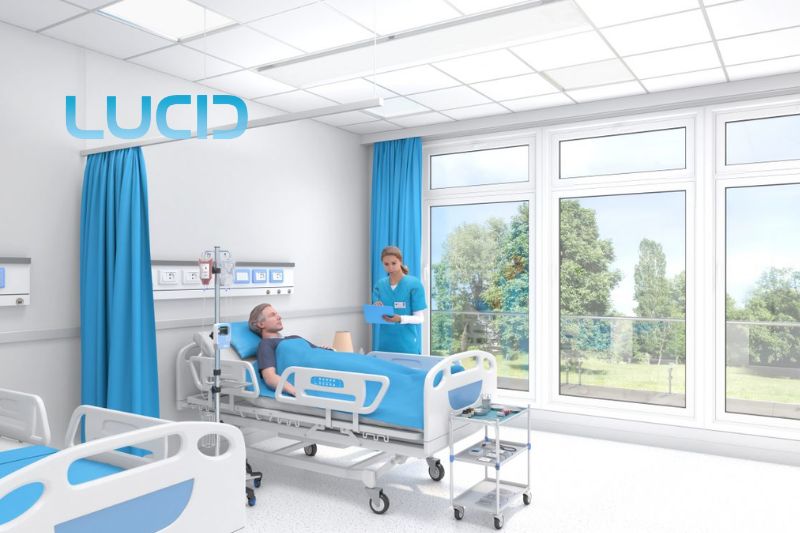
A camera can assist in keeping track of unforeseen events like a patient falling or having a medical emergency. This is especially important when the patient can’t remember what happened.
Patient Protection
Having a camera in a hospital room can safeguard patients from potential harm. When we visit the doctor or hospital, we are looked after by caregivers who are new to us. Cameras may be present in our rooms to ensure that the caregivers provide good care and treat us with kindness.
Also, the camera can help make sure that we get the right medicine and treatment. It’s like having an extra eye to watch over us and make sure we are safe and healthy.
Efficiency and Operational Cost Reduction
Cameras can be used in hospitals to make things work better and cost less. For example, they can check if equipment is used the right way.
Also, cameras can watch how patients move around and be sure they get help on time. This can make waiting times shorter and things work better.
It’s important to ask patients and their family if it’s okay to put a camera in their hospital room. Patients have a right to keep things private. It’s also important to follow the laws about using cameras
What Do Hospital Cameras Look like?
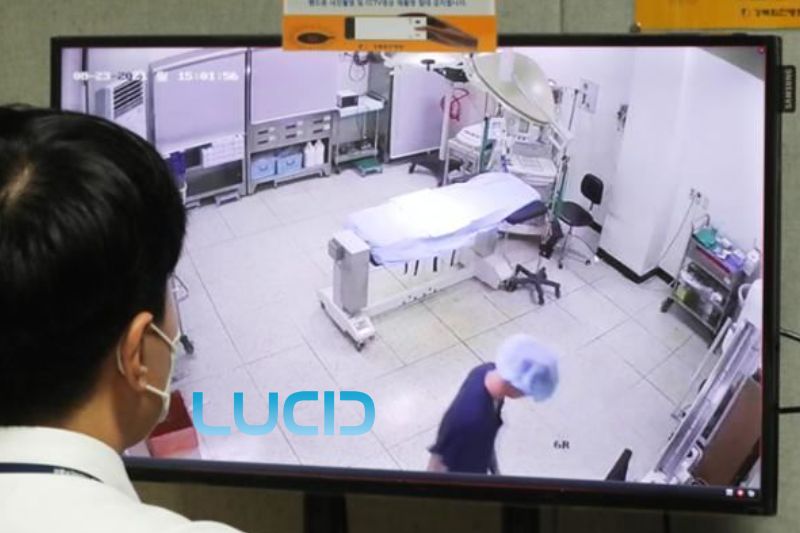
Cameras in hospitals can look different depending on why they are used and where they are put. Sometimes they can be tiny and not easy to see, but other times they can be bigger and easier to spot.
Here are some examples of what hospital cameras may look like.
- Ceiling-Mounted Cameras: Some security cameras in hospitals are mounted on the ceiling of a room. These cameras are typically small and unobtrusive and may be dome-shaped or flat. Ceiling-mounted cameras are often used for monitoring patient movements and for incident recording.
- Wall-Mounted Cameras: Some hospital cams can be placed on a room’s wall. These cameras may be bigger and more noticeable than cameras that are placed on the ceiling. Wall-mounted cams are often used to watch how workers treat patients or to keep an eye on high-risk patients.
- Portable Cameras: Hospital cameras may sometimes be portable and can be relocated from one room to another based on the requirement. They may either be handheld or installed on a movable stand. Such cameras are generally utilized for monitoring patient activities and for recording incidents.
Do Hospitals Have Cameras In Every Room?
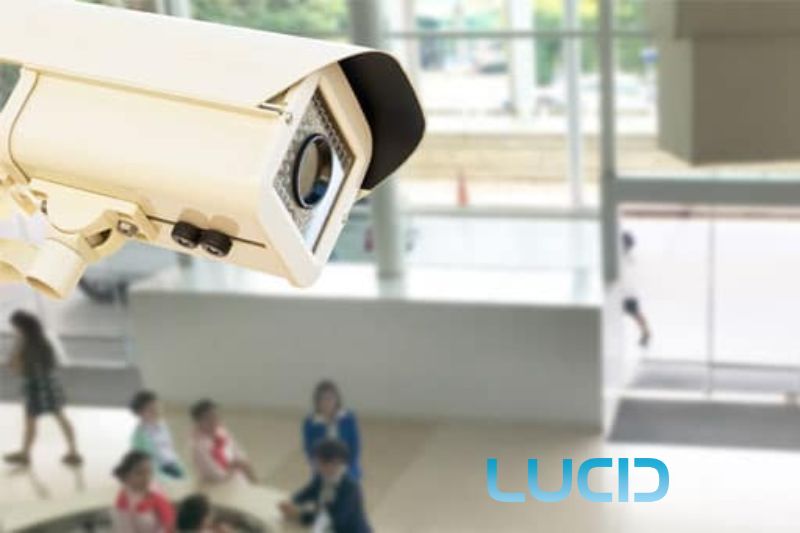
Not every room in a hospital has a camera. They decide if a room needs one by looking at different things.
Some hospitals have special care for people with different needs, and they might have cameras in those rooms. Also, if someone might fall or have problems, there might be a camera in their room to help keep them safe.
Hospitals employ room cameras to monitor patients and prevent potential injuries. However, they must also balance patient safety with privacy concerns.
Pros and Cons of Hospital Security Cameras
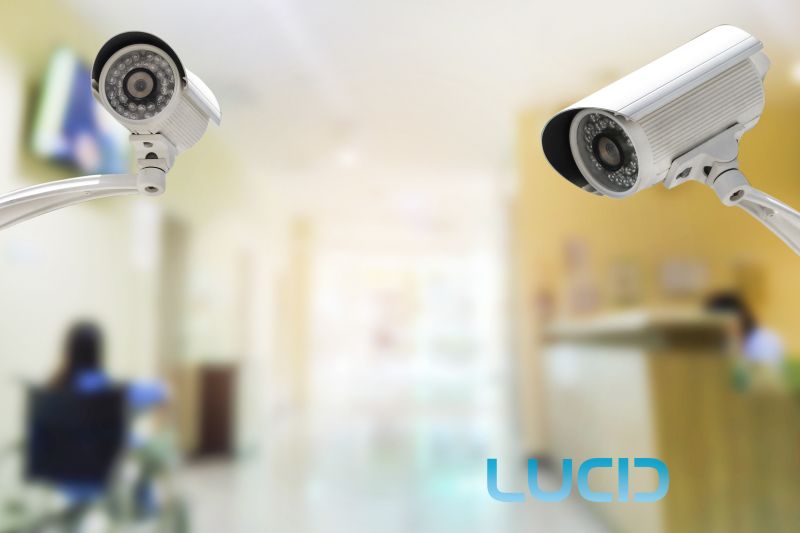
Hospital security cameras can provide several benefits, but they also have some drawbacks. Here are some pros and cons of hospital security cameras:
Pros:
- Deterrence: Potential thieves and vandals can be scared away by security cams, which can help cut down on theft and damage.
- Incident Recording: Cameras used for security in hospitals can capture incidents like a patient falling or a staff member behaving improperly. This can assist in identifying the problem and finding ways to resolve it.
- Patient Safety: Security cameras can monitor individuals in hospitals and ensure that they receive the necessary care and attention.
- Staff Monitoring: Security cams can be used to keep an eye on how hospital staff acts and make sure they are following the right rules and processes.
- Remote Monitoring: Security cams can be used to keep an eye on how hospital staff acts and make sure they are following the right rules and processes.
Cons:
- Invasion of Privacy: Security cameras can make people feel uncomfortable and not trust each other because they can be seen as an invasion of privacy.
- Cost: Putting up and taking care of security cams can be expensive, which can be hard for hospitals that don’t have a lot of money.
- Legal Issues: The use of security cameras can raise legal issues, such as those related to patient privacy and consent.
- False Sense of Security: The appearance of security cams can make people feel like they are safe, which can make them less alert and less careful.
- Misuse: Security cameras can be misused by staff, which can lead to abuse of power and breaches of patient privacy.
What Types Of Security Cameras Do Hospitals Use?
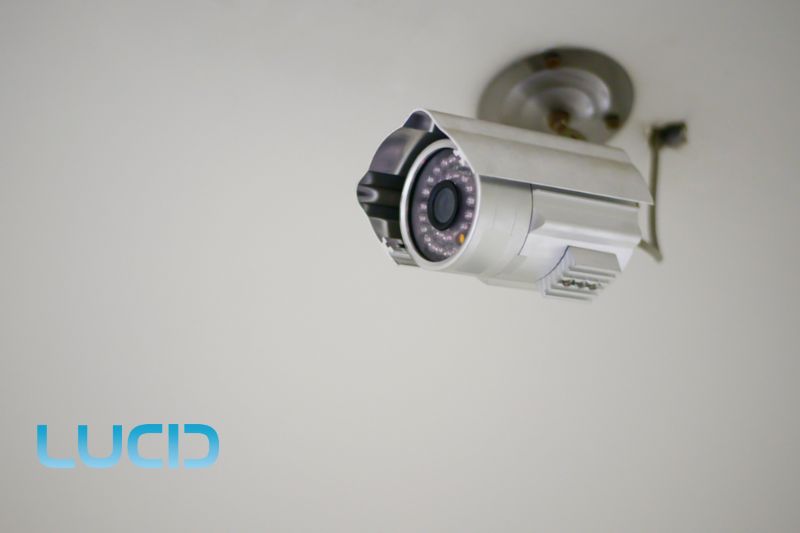
Here are some types of security cameras that hospitals commonly use:
- Dome Cameras: Dome cameras are often used in hospitals due to their discreet appearance and 360-degree field of view. They can be easily mounted on ceilings or walls and provide a clear view of the surroundings.
- Bullet Cameras: Bullet cameras are a common choice for hospitals and are generally smaller than dome cameras. They are mounted on walls or ceilings and are often used in outdoor areas like parking lots to monitor entry and exit points.
- Pan-Tilt-Zoom (PTZ) Cameras: Hospitals frequently use PTZ cameras as they offer a broader field of view and the ability to zoom in and out. These cameras can be operated remotely to pan, tilt, and zoom into particular areas of concern.
- Infrared Cameras: Hospitals use infrared cameras to monitor dimly lit environments and capture clear images even in the dark. These cameras are commonly utilized for monitoring areas such as parking lots or stairwells.
- Network Cameras: Network cameras connect to a hospital’s computer network and are accessible from any computer on the network. They are frequently utilized to monitor several locations at the same time.
- Thermal Cameras: Thermal cameras use heat signatures to detect movement and can be useful in areas where there is poor visibility. They are often used in outdoor areas to monitor for intruders.
Hospitals choose security cameras that fit their needs to keep everyone safe. Using the right cameras helps protect patients, staff, and visitors
How Long Do Hospitals Keep Video Surveillance?
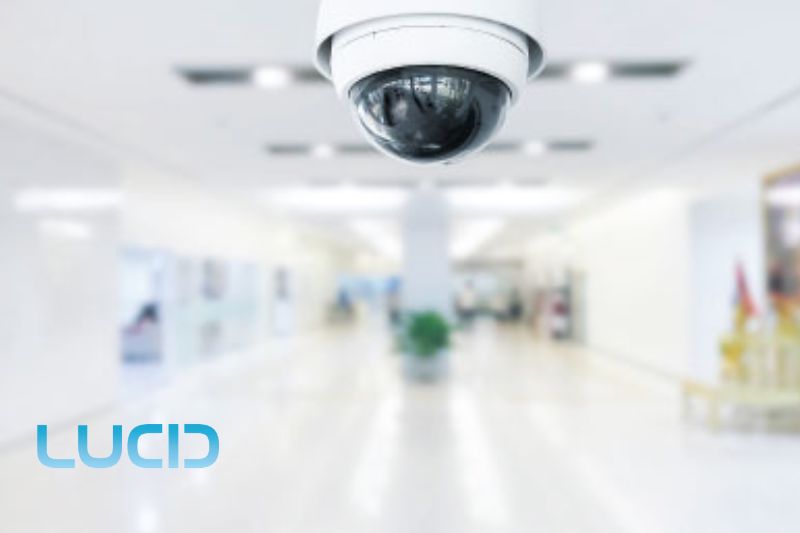
In most cases, hospitals must keep video security footage for at least 30 days. However, some hospitals may keep footage for longer, based on their policies and the law.
Hospitals may keep videos for a long time, especially if they are being used in court. How long they keep the footage depends on legal rules, how much storage they have, and why they made the video.
FAQs about Do Hospital Rooms Have Cameras

Are cameras allowed in hospital rooms?
Hospitals have different rules about putting cameras in patient rooms. Usually, they want to protect patient privacy, so they only use cameras if they are necessary for keeping patients safe and healthy.
Why are cameras not allowed in hospital rooms?
Hospital rooms prohibit the use of cameras to safeguard the privacy and confidentiality of patients. Patients are entitled to secure and confidential medical treatment without any apprehension of surveillance or recording.
What are some situations where cameras may be allowed in hospital rooms?
Hospitals may use cameras in patient rooms for different reasons like keeping an eye on people who are in danger and for research. They may also use them for security, like watching entrances and exits. People must agree to this before it happens.
Is it legal to install cameras in hospital rooms?
Whether or not it is permissible to install cameras in hospital rooms may vary depending on the location and regulations in that area.
In general, hospitals must follow privacy and security laws when placing cameras in patient rooms, and patients must be told about the use of hospital room cameras and have the option to refuse.
Are there cameras in hospital bathrooms?
No, Cameras are not put in hospital bathrooms because they are private places where people have a right to privacy. Even if there are security reasons to do so, cams are usually not put in bathrooms in hospitals or other private places.
Read more:
- Do Ring Cameras Work Without WiFi? How to Set Up Top Full Guide 2023
- How To Detect A Hidden Camera In Bathroom? What Do You Do When Detecting It?
Conclusion
To sum up, cameras are becoming common in hospital rooms because they can make hospitals safer and provide better care to patients. However, cameras can also cause privacy and health concerns. So, hospitals need to have rules to protect patient privacy while still keeping them safe and well-cared for. Thank you for reading
